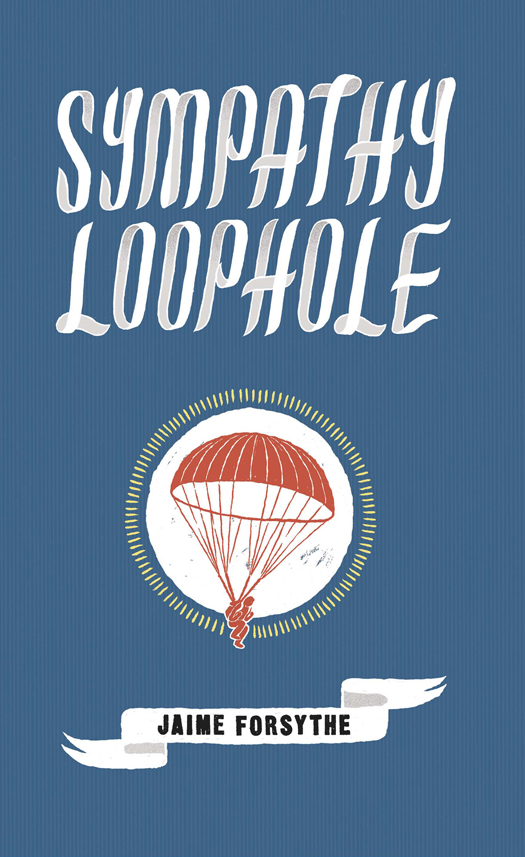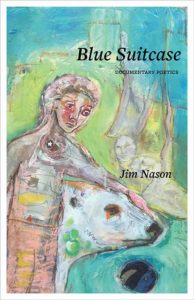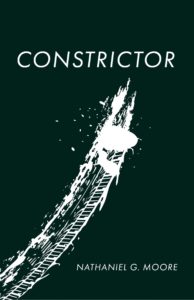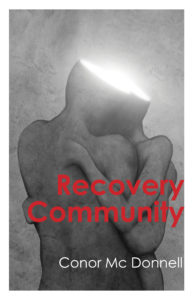J aime Forsythe’s debut poetry collection, Sympathy Loophole, was recently reviewed in the first issue of a very fine and very tiny literary magazine called illiterature., out of Kingston, Ontario. Mansfield has been bringing its writers to Kingston to launch their books for a few years now; we get an awfully nice welcome from the amazing literary community there. Thanks to the publisher of illiterature. for allowing us to repost the review.
A Veritable Smorgasbord
a review of Jaime Forsythe’s
Sympathy Loophole
by Michael. e Casteels
In her debut book of poetry, Sympathy Loophole, Jaime Forsythe offers up a veritable smorgasbord of images. It is a buffet where the everyday and the extraordinary are piled onto the same plate. Perfectly normal sentences are sandwiched between lines that are entirely surreal. The result is a unique blending of worlds that shows us just how unreal real life can be.
In most surrealist poetry there is a tendency for every line to push the boundaries of imagination. The reader may begin in a world that seems normal but gradually becomes more dreamlike as the poem progresses. Words that normally have no association with one another are brought together to create shock and surprise. Jaime approaches her poetry in a very different way. She strives for a fine balance between the weird and the normal, for example, three sentences from the piece “I lost my train”:
Someone drew me a picture
of my house. The doorbell rang,
but it was only a wisp of salt fog,
ghosting by. A surname
was stencilled on each boxcar.
Here we have two very concrete images with something abstract holding them together. It’s easy for the reader to visualize a picture of a house, or graffiti on the side of a train, but more of a stretch to imagine a wisp of fog ringing a doorbell. The reader is presented with three very satisfying images, but is not overwhelmed. The simplicity of the first and last line helps to ground the poem, and keeps the reader from getting lost. Jaime’s poetry is much more approachable and friendly because of this.
That being said, these are poems you need to pay attention to. Having heard the poet read on a few occasions I know the delivery to be slow, quiet, and understated. Jaime never forces an image, but encourages the reader to draw as much as they can from her poems. As such, these poems should be read in the same way. I suggest reading them somewhere quiet, drink tea instead of coffee, and don’t rush. There’s a lot that can be missed.
In her writing Jaime focuses on fine details: small trinkets play large roles, buttons on a shirt come into the foreground, memories are riddled with sawdust and wax. The major themes of love and death are present, but are only alluded to through these details. She adheres strictly to the rule of ‘show, don’t tell’. Take this line, from the poem “Small Town”: “You fold in upon yourself as the milk expires and the news repeats.” In this poem, which is ultimately about someone’s death, she allows everyday objects to speak for her. The expiring milk, the repeating news— both are synonymous with the passage of time, the world carrying on without this person in it. Throughout her poetry, Jaime rests the weight of complex emotions on these seemingly mundane things. She holds a magnifying glass up to the world and shows us the importance of detail. After reading her book you may never look at spoons, glasses or canned food in the same way again.
Other poems are more straightforward, but no less compelling.
Games
I stepped into a statue
to see if I would fit, tilted
my head and raised my arms,
shouldered a musket, held still hoping
no one would notice my blinks.
I felt my skin harden and turn dull
bronze, standing above a plaque
bearing my name that some paused
to read on their way to the Mexican
restaurant where you can order
a burrito the size of a baby, and if
you finish every bite win a t-shirt,
say cheese with the wait staff.
Meanwhile I was frozen outside,
no longer trembling or wishing
I had someplace interesting to be.
Interestingly, the part which seems the most surreal is not the fact that the narrator is inhabiting a statue, it is the baby-sized burrito, the eating contest. Jaime begins the poem in such a way that becoming a statue seems commonplace, entirely accepted if not expected. Though this restaurant actually exists, it seems ridiculous even when compared to something as surreal as becoming a statue. This reversal of the real and unreal brings to light how wacky our world really is, which is a sign of very effective and strong surrealist poetry.
One would think that a poem with this concise imagery and its layered dimensions would be the result of careful planning and heavy editing, but that is not the case. It was written in about seven minutes at a poetry workshop I also attended. The writing prompt was a simple one, begin with the phrase “I stepped into…” then write the rest of the poem. When everyone set down their pens we all shared what we had written. When Jaime read it was this exact poem. I’m certain other poems are more delicately crafted and must have take hours to polish, but this poem shows how natural her creativity is. This natural creativity is abundantly clear throughout every poem in the book. It makes the reader feel comfortable. Even with words like apothecary, invigilator, or phoneme we still feel at home.
If I were to quote every line that I found intriguing, every image that jumped off the page or pulled me into it I’d very easily copy out her entire book. Jaime is a fabulous writer and this being her first collection says volumes for what we can expect in the future. She ends the poem “Steps the size of seeds” with the line, “Every month, I crossed one giant/ square of sidewalk off my growing list.” — my recommendation? Go out to your local independent bookstore, and pick up a copy of Sympathy Loophole, read it, and cross it off your list. It’s at the top, whether you know it or not.





























